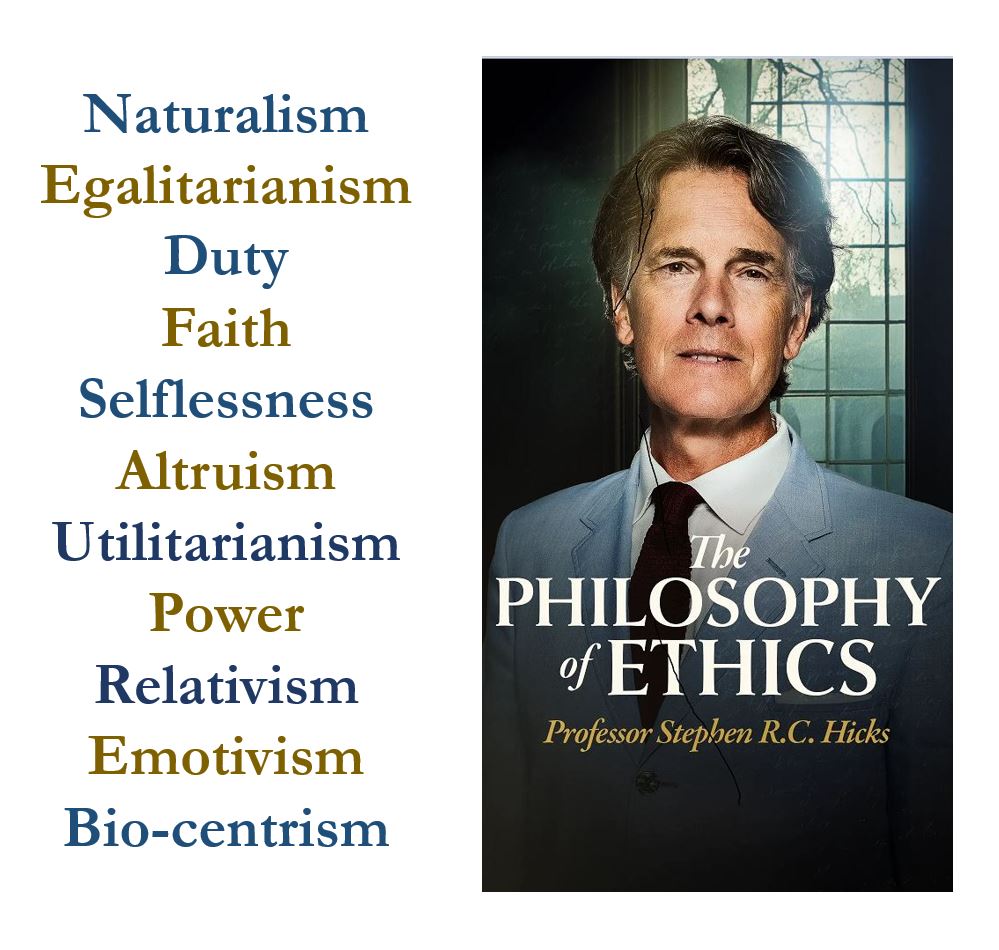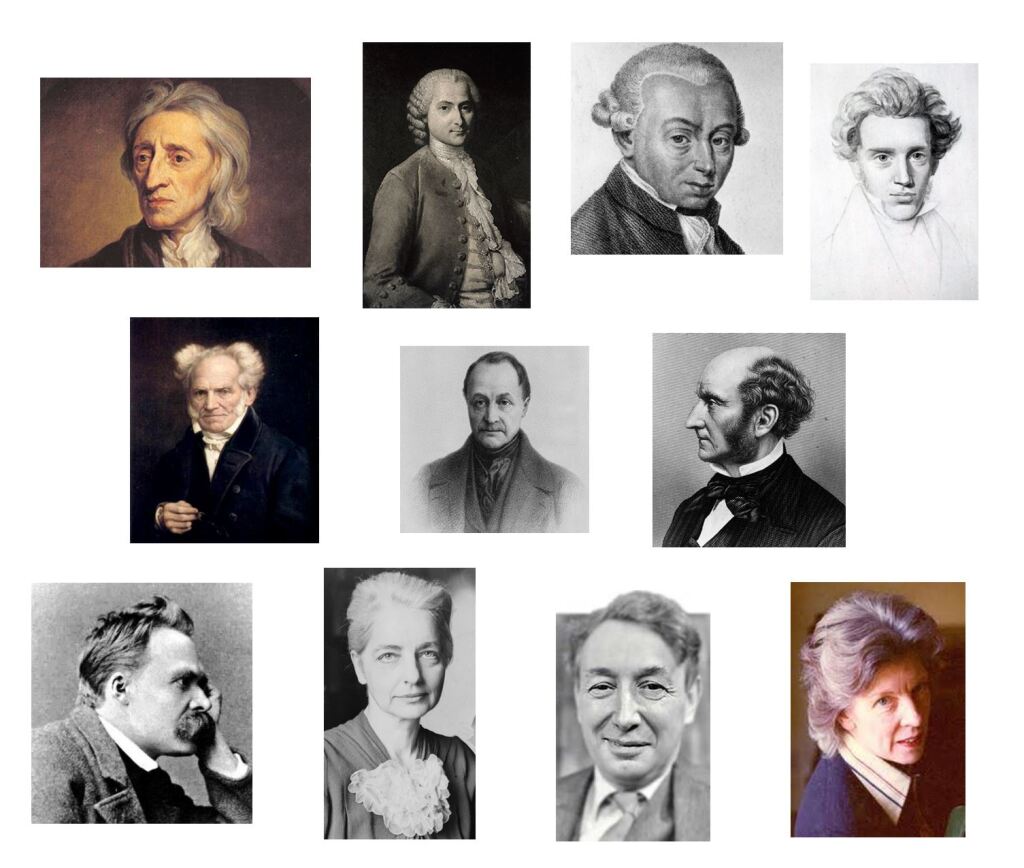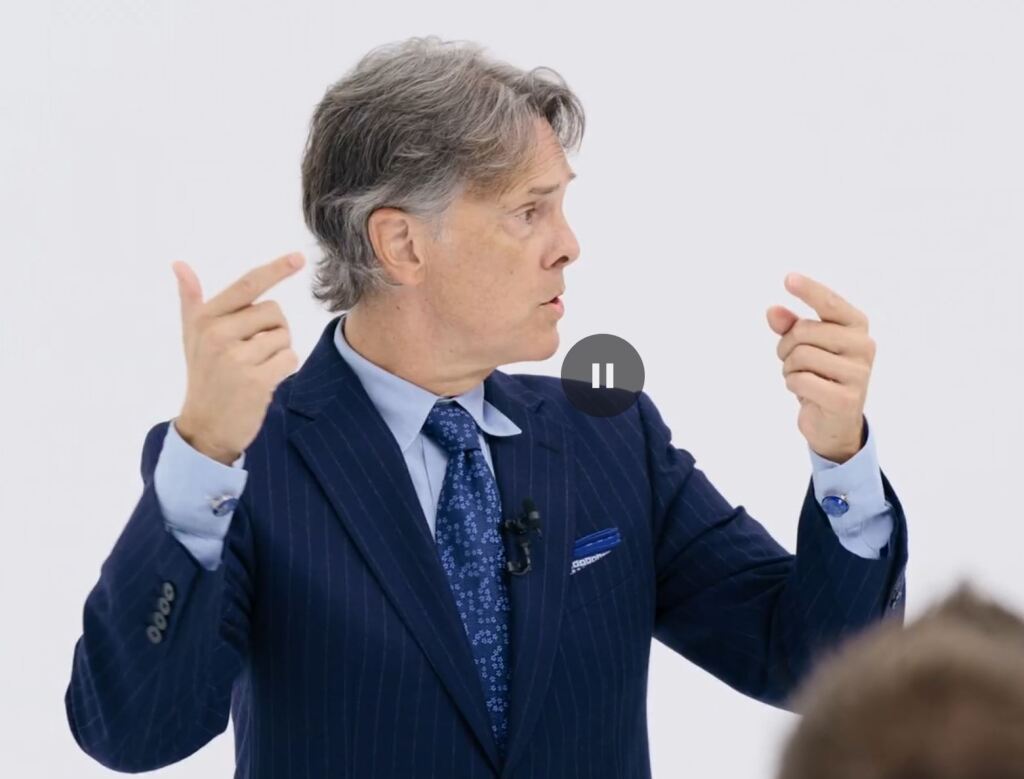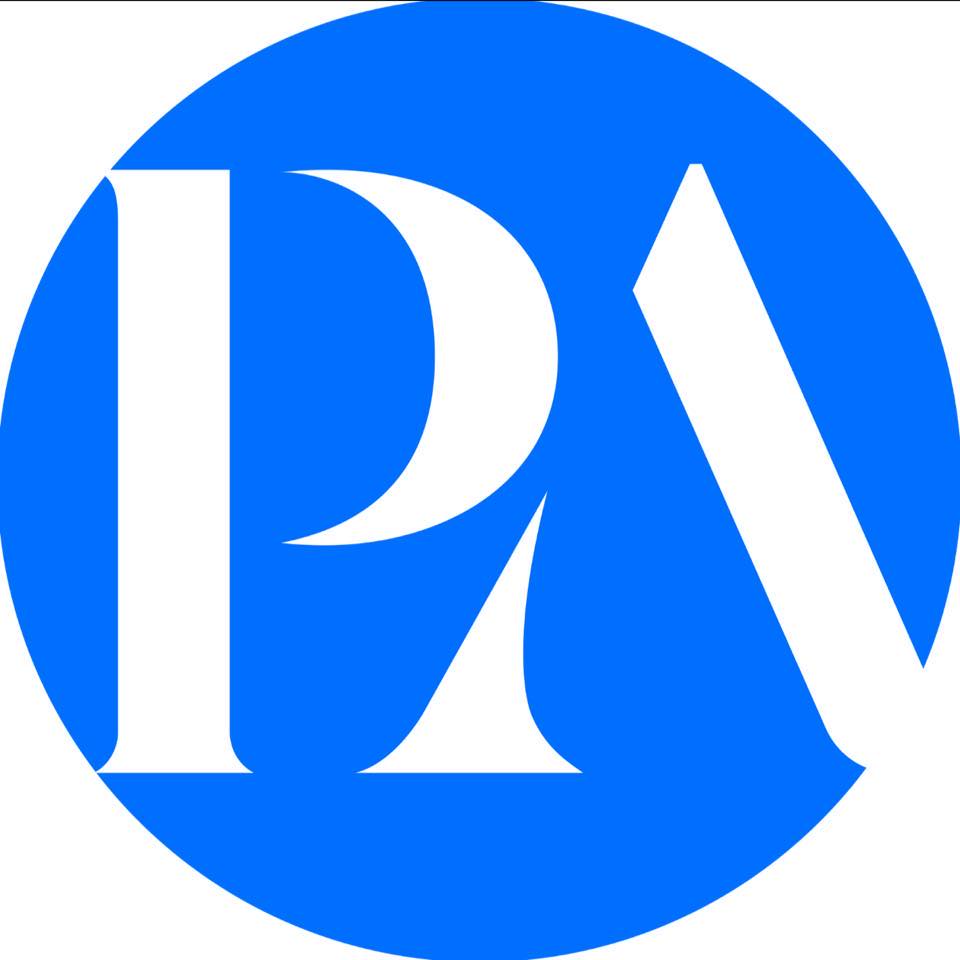
In this eight-lecture course, Professor Hicks takes us on a journey through the evolution of modern moral philosophy, from the Enlightenment to the 21st century. Major thinkers covered include:
John Locke, Jean-Jacques Rousseau, Immanuel Kant, John Stuart Mill, Arthur Schopenhauer, Søren Kierkegaard, Auguste Comte, Friedrich Nietzsche, Ruth Benedict, A.J. Ayer, and Philippa Foot.


For each, Professor Hicks establishes the moral philosopher’s intellectual context, presents his or her most influential arguments, and quotes directly from the philosopher’s important books or essays. Other significant thinkers, key ideas, and historical events in the modern era are included.
Lecture One: What Is the Meaning of Life? John Locke versus Jean-Jacques Rousseau
Themes: Traditional Hierarchy? Liberty and/or Equality. Six Deep Questions about Ethics. What is ‘Modern’? Texts: Locke, Essay concerning Human Understanding. Rousseau, Discourse on the Origin of Inequality
Lecture Two: Absolute Duty. Immanuel Kant
Themes: Purifying Ethics. Divine Command Theory. Moses. Uzzah. Whose interests: Egoist, Predatory, Altruist? None: Deontology. Texts: Kant, Groundwork of the Metaphysics of Morals and Critique of Practical Reason
Lecture Three: Is God Dead? Søren Kierkegaard
Themes: Abraham and absolute faith. Psychological functionalism? Pascal’s Wager? Social functionalism? Texts: Kierkegaard, Fear and Trembling and Either-Or.
Lecture Four: Altruism and Self-Sacrifice. Arthur Schopenhauer and Auguste Comte
Themes: Suffering. Nihilism. Self-interest and selflessness. Egoism, Predation, and Altruism. The Religion of Humanity. Texts: Schopenhauer, The Basis of Morality and The World as Will and Representation. Comte, The Catechism of Positive Religion
Lecture Five: The Greatest Happiness for the Greatest Number. John Stuart Mill
Themes: Hedonism. Epicurus. Utility. Bentham. Individual or collective? The problem of Casanova, de Sade, Sacher-Masoch. Dostoevsky and Crime and Punishment. Text: Mill, Utilitarianism
Lecture Six: Predation and Power. Friedrich Nietzsche
Themes: Gyges. Original Sin? Master and slave moralities. Slavery as natural and necessary? A new aristocracy. Texts: Nietzsche, “The Greek State,” Beyond Good and Evil, and The Will to Power
Lecture Seven: Subjective Relativism. Ruth Benedict and A.J. Ayer
Themes: Anthropology. Meaninglessness (semantic and prescriptive). So subjective leaps? So individual emotivism? So group conditioning? Texts: Ayer, “A Critique of Ethics.” Benedict, Patterns of Culture.
Lecture Eight: Biological Naturalism. Philippa Foot
Themes: Trolley Problems. Is the “Naturalistic Fallacy” a fallacy? Hume. The question of objectivity. Aristotle and Rand. The moral philosopher as first a biologist. Concluding Chart. Text: Foot, Natural Goodness.
About the Instructor

Stephen R. C. Hicks, Ph.D. is Professor of Philosophy and the author of Explaining Postmodernism: Skepticism and Socialism from Rousseau to Foucault, Nietzsche and the Nazis, Entrepreneurial Living, Liberalism Pro and Con, and Eight Philosophies of Education. He has published in Business Ethics Quarterly, Review of Metaphysics, and The Wall Street Journal. His writings have been translated into twenty languages. He has been Visiting Professor of Business Ethics at Georgetown University (Washington, DC), Visiting Professor at the University of Kasimir the Great (Poland), Visiting Fellow at Harris Manchester College (Oxford University), and Visiting Professor at Jagiellonian University (Poland).
Trailer and enrollment options at the Peterson Academy site here.
See also Professor Hicks’s Modern Philosophy and Postmodern Philosophy courses.

Where is Trump?
🙂